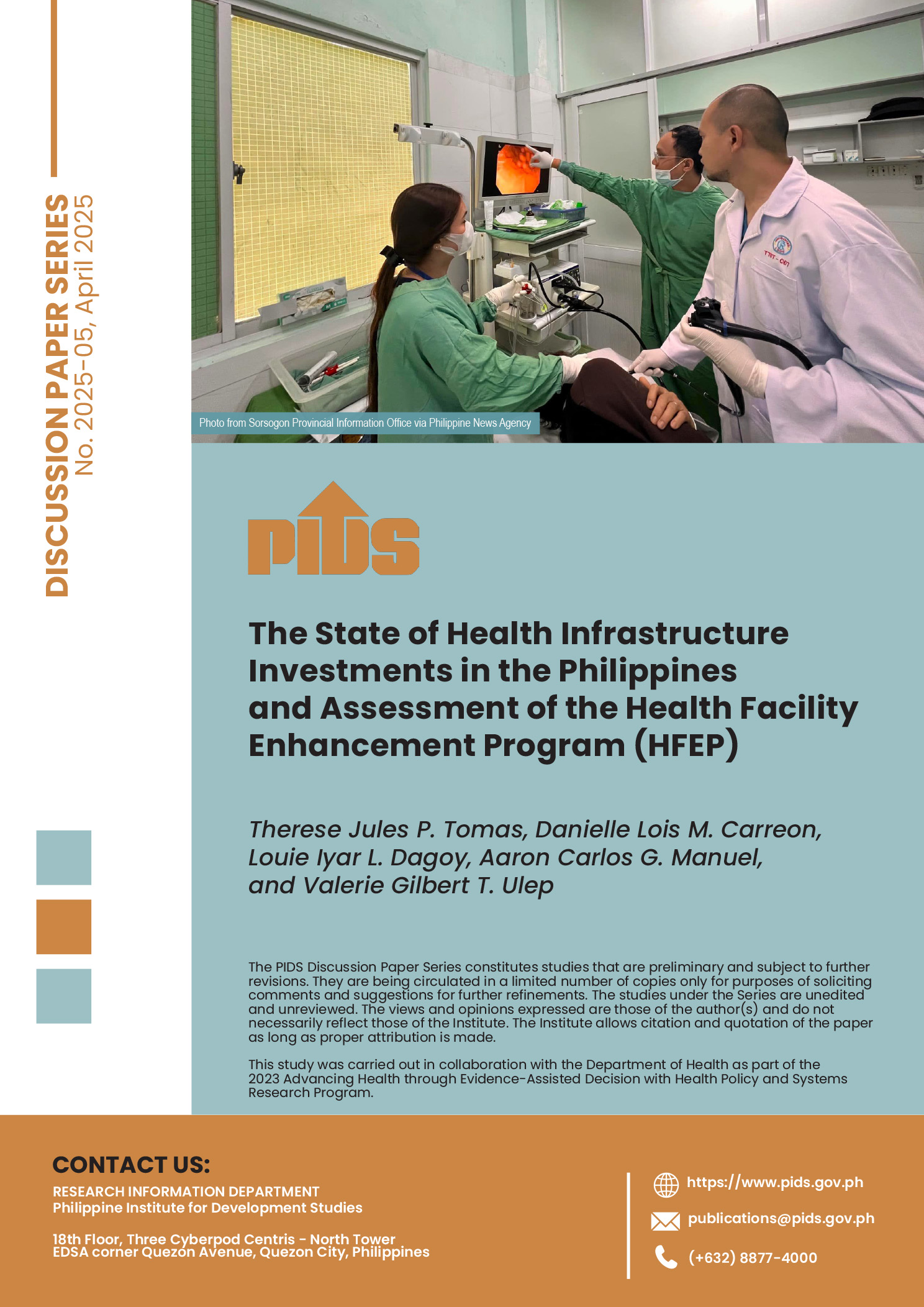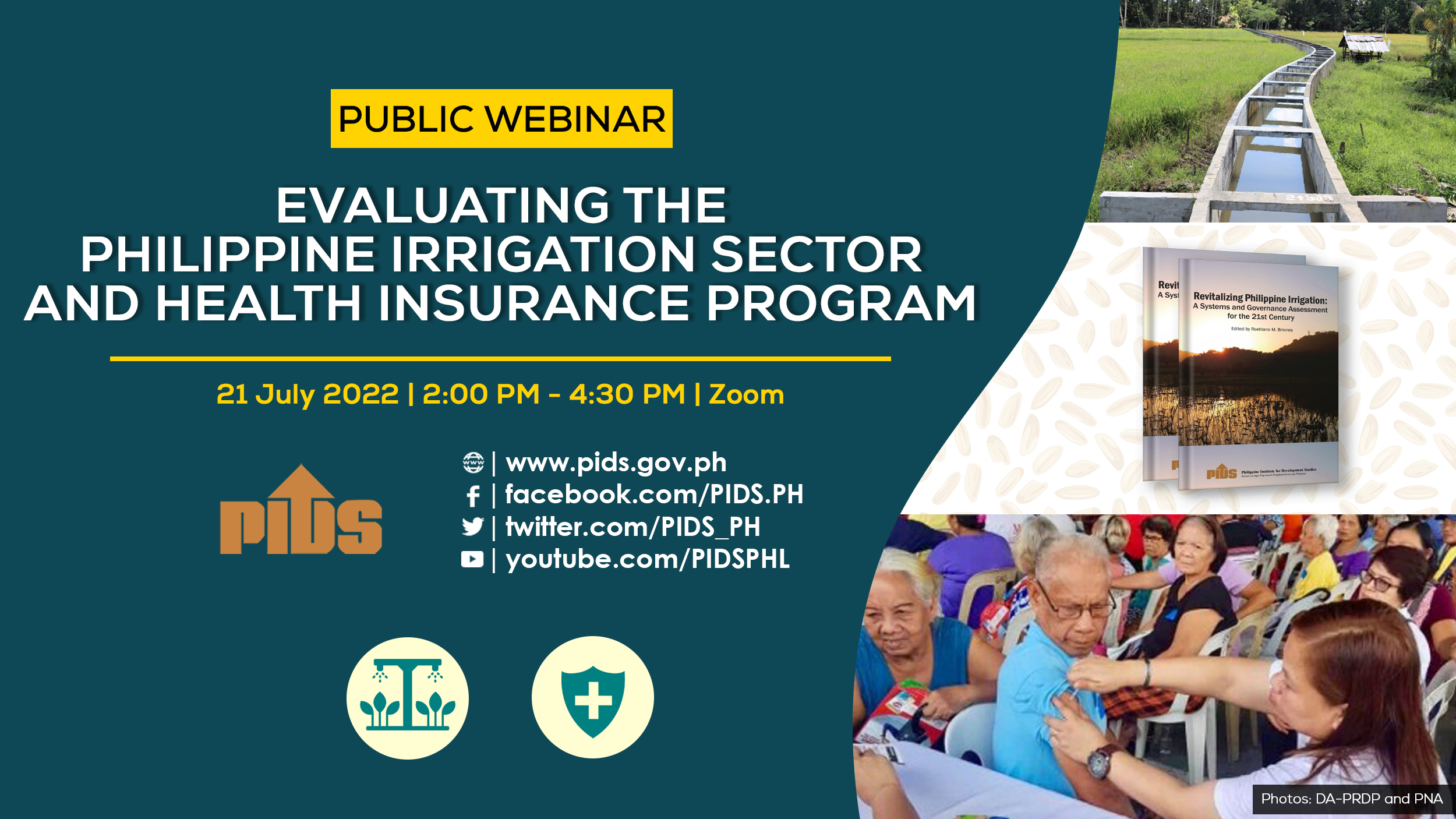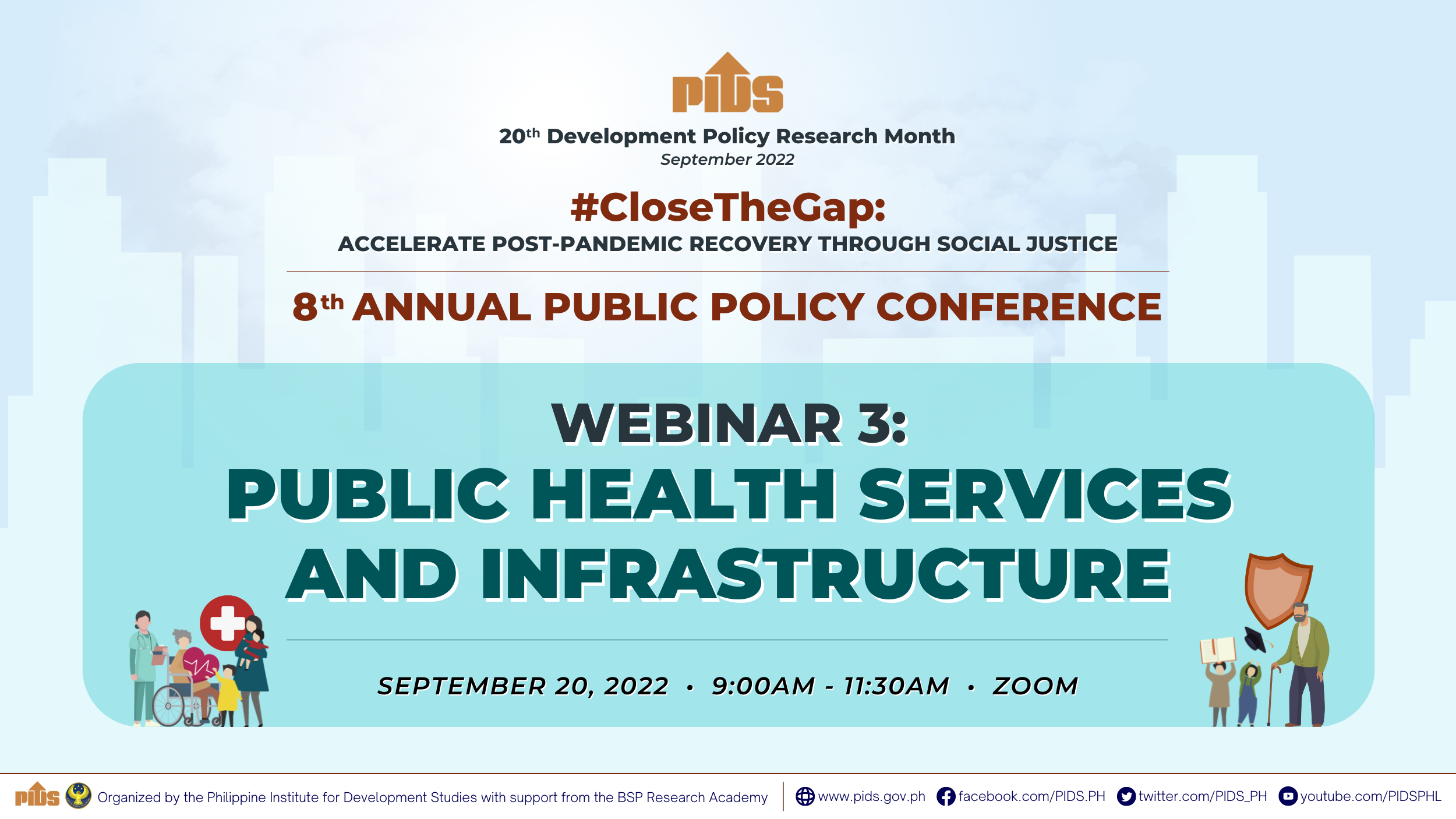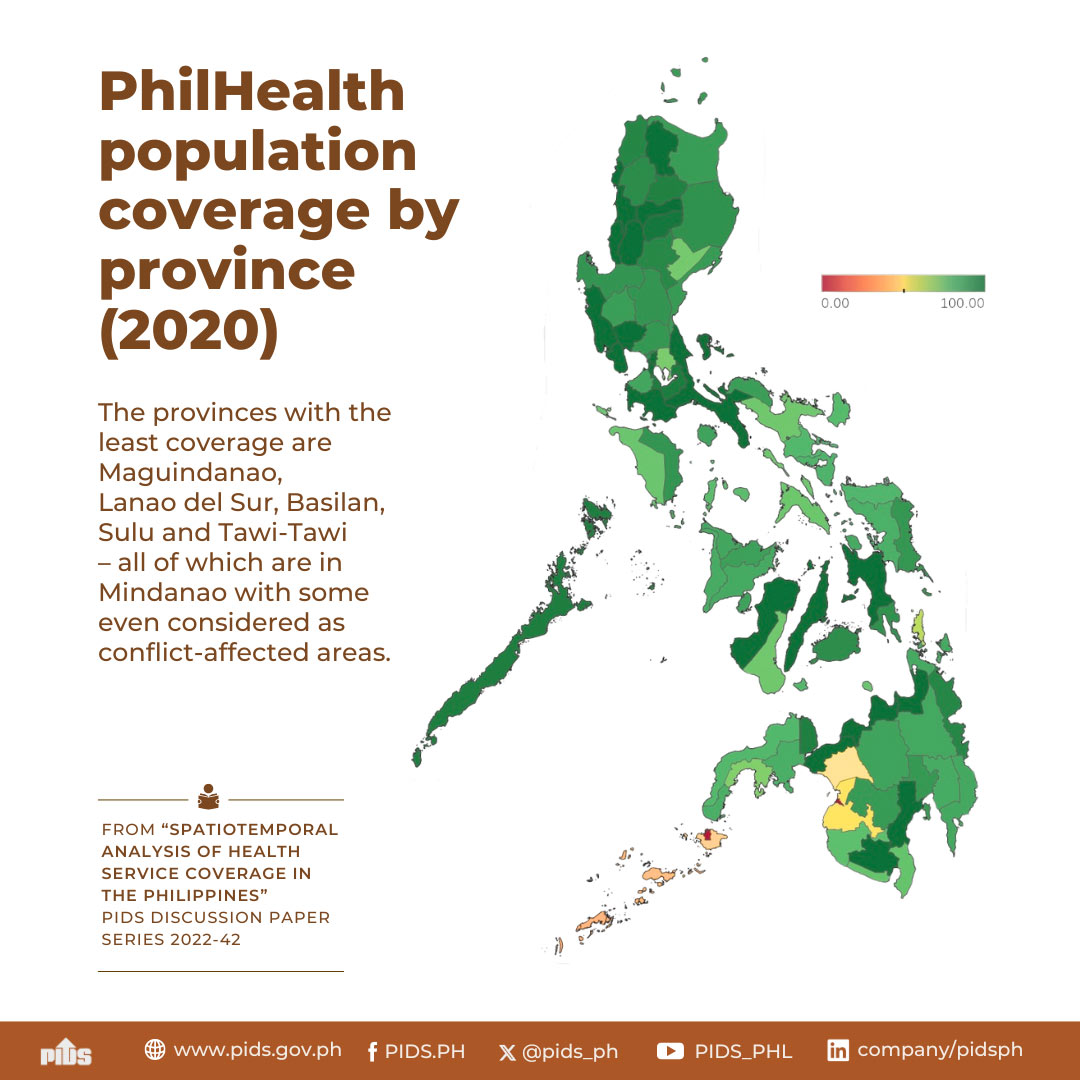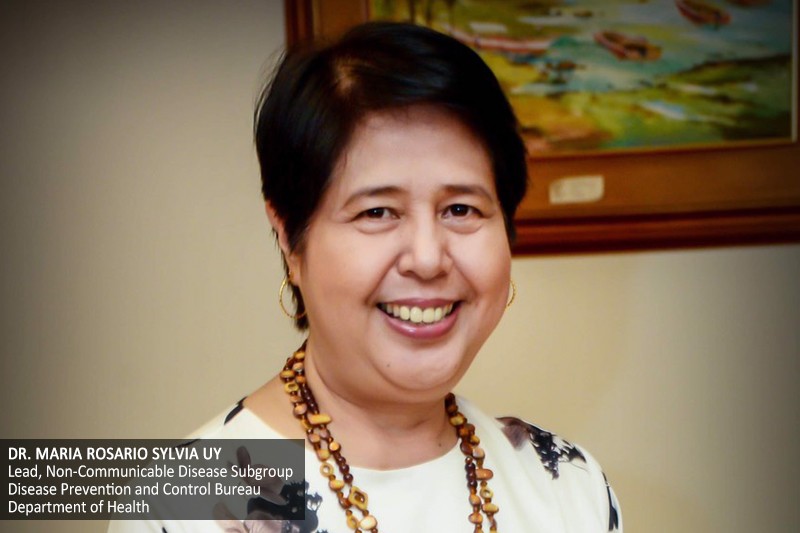
The country should prioritize its primary health care (PHC) to succeed in implementing the Universal Health Care (UHC) Act.
Maria Rosario Sylvia Uy, lead of the Non-Communicable Disease Subgroup of the Department of Health’s (DOH) Disease Prevention and Control Bureau, emphasized this at a webinar recently organized by state think tank Philippine Institute for Development Studies (PIDS). The webinar tackled the country’s Expanded Program on Immunization and its readiness to manage noncommunicable diseases.
According to PIDS Research Fellow Valerie Gilbert Ulep, who presented the study titled “Primary Health Care for Noncommunicable Diseases in the Philippines”, PHC is the “initial point of contact for individuals, families, and communities into the healthcare system”.
“Strengthening the primary care level plays a crucial role in progressively realizing universal health care,” Uy said, adding that “this is consistent with the global consensus that having a strong primary care system is necessary to accelerate universal health care.”
“This might be the answer we are looking for to all our problems,” she noted.
The UHC Act or Republic Act 11223 stipulates that “Filipinos are guaranteed equitable access to quality and affordable health care goods and services, and protected against financial risk.” The law also provides a “planned paradigm shift to primary care, which is the core and center of all health reforms under the UHC”.
In her presentation, Uy recognized an issue that hampers the delivery of the country’s primary health care service. She noted that the existing vertical programs have resulted in the fragmented delivery of health services down to the local level.
“Our staff in our rural health units have assumed vertical program roles and have not been holistic in their approach to patients contrary to our UHC definition of primary care,” Uy explained. She emphasized that primary care should be horizontal, which means that “primary care workers should know how to manage the spectrum of diseases they encounter in our primary care facilities.”
Uy said the DOH has implemented some measures to address the challenges in the country’s primary health care. These include the development of a manual of procedures (MOP) for primary care service and primary care service training modules, among others.
The manual will include the following: definition of primary care; the rights of patients and health workers; primary care service packages for all life stages; capacity building; requirements for competency, infrastructure, health technology, and supplies; and monitoring and evaluation. According to Uy, the MOP is expected to be completed by the second quarter of 2021 and will be disseminated to various centers for health development.
They are also developing a primary care training package to ensure that primary care workers will be competent in providing all primary care services and are equipped to perform their roles as navigators, coordinators, and initial and continuing point persons in the healthcare delivery system. Uy said the training package will be finished by the third quarter of this year.
She added that orientations will be provided to primary health workers, and provisional primary care certificates may be issued to them. By 2023, they will undergo primary care assessment and certification. ###
You may watch the webinar at https://www.facebook.com/PIDS.PH/videos/460568465216019. For more videos of PIDS events, go to https://www.pids.gov.ph/videos.
Maria Rosario Sylvia Uy, lead of the Non-Communicable Disease Subgroup of the Department of Health’s (DOH) Disease Prevention and Control Bureau, emphasized this at a webinar recently organized by state think tank Philippine Institute for Development Studies (PIDS). The webinar tackled the country’s Expanded Program on Immunization and its readiness to manage noncommunicable diseases.
According to PIDS Research Fellow Valerie Gilbert Ulep, who presented the study titled “Primary Health Care for Noncommunicable Diseases in the Philippines”, PHC is the “initial point of contact for individuals, families, and communities into the healthcare system”.
“Strengthening the primary care level plays a crucial role in progressively realizing universal health care,” Uy said, adding that “this is consistent with the global consensus that having a strong primary care system is necessary to accelerate universal health care.”
“This might be the answer we are looking for to all our problems,” she noted.
The UHC Act or Republic Act 11223 stipulates that “Filipinos are guaranteed equitable access to quality and affordable health care goods and services, and protected against financial risk.” The law also provides a “planned paradigm shift to primary care, which is the core and center of all health reforms under the UHC”.
In her presentation, Uy recognized an issue that hampers the delivery of the country’s primary health care service. She noted that the existing vertical programs have resulted in the fragmented delivery of health services down to the local level.
“Our staff in our rural health units have assumed vertical program roles and have not been holistic in their approach to patients contrary to our UHC definition of primary care,” Uy explained. She emphasized that primary care should be horizontal, which means that “primary care workers should know how to manage the spectrum of diseases they encounter in our primary care facilities.”
Uy said the DOH has implemented some measures to address the challenges in the country’s primary health care. These include the development of a manual of procedures (MOP) for primary care service and primary care service training modules, among others.
The manual will include the following: definition of primary care; the rights of patients and health workers; primary care service packages for all life stages; capacity building; requirements for competency, infrastructure, health technology, and supplies; and monitoring and evaluation. According to Uy, the MOP is expected to be completed by the second quarter of 2021 and will be disseminated to various centers for health development.
They are also developing a primary care training package to ensure that primary care workers will be competent in providing all primary care services and are equipped to perform their roles as navigators, coordinators, and initial and continuing point persons in the healthcare delivery system. Uy said the training package will be finished by the third quarter of this year.
She added that orientations will be provided to primary health workers, and provisional primary care certificates may be issued to them. By 2023, they will undergo primary care assessment and certification. ###
You may watch the webinar at https://www.facebook.com/PIDS.PH/videos/460568465216019. For more videos of PIDS events, go to https://www.pids.gov.ph/videos.

